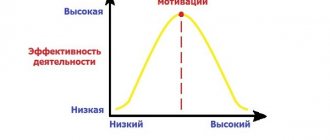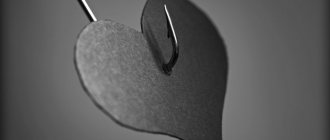Have you often thought about getting rid of a bad habit? This is not about smoking, drinking alcohol or eating too much. It's about small habits that irritate others, provoke conflict situations, make you feel shy in society and simply interfere with your life.
Someone can live for years and not know until then that his chomping haunts those around him, while others struggle for a long time and unsuccessfully with nail biting. Common psychological bad habits include:
• Biting nails • Biting lips • Picking wounds • Chomping • Clicking fingers • Chewing pens, pencils • Whistling • Picking nose/ears
If you are familiar with such manifestations, then you know how sometimes we are dependent on bad psychological habits. How to stop repeating the same manipulations? How to get rid of bad habits on your own? And what lies behind this seemingly harmless habit?
Poor nutrition
An unbalanced diet and lack of eating habits are a serious problem that can destroy your health in a short time.
The most common errors in nutrition and diet are:
- Eating food before bed. This significantly complicates the work of the gastrointestinal tract and leads to interruptions in the functioning of the digestive system.
- Excessive consumption of sweets. Sweets are fast carbohydrates that sharply increase blood sugar levels. After a sharp jump, an equally sharp decline occurs. Frequent surges can cause disruption in the body's endocrine system. In addition, people with a sweet tooth often overeat, because... A drop in sugar levels causes an acute feeling of hunger. In addition, excess sugar consumption causes oral diseases and disrupts digestion.
- A large amount of salt in the diet. Excess salt has a detrimental effect on the kidneys and urinary system as a whole. It can also cause musculoskeletal problems.
Eating disorders such as anorexia and bulimia deserve special attention. Anorexia is a refusal to eat or a significant restriction of food, and bulimia is an uncontrolled overeating, after which a person feels shame and vomits. Eating disorders lead to vitamin deficiency, anemia, exhaustion, and disturbances in the functioning of the cardiovascular system. These are life-threatening conditions that require mandatory consultation with a nutritionist and psychiatrist.
Defense, my defense
The term “defense mechanisms” itself was introduced by Freud - the theorist first used it in his work “Defensive Neuropsychoses” and later turned to it when reviewing a person’s struggle with painful memories. Initially, he spoke mainly about repressing unpleasant thoughts, but later Freud’s information was supplemented by other analysts. Thus, with the help of American specialist Nancy McWilliams, people learned that their behavior can be influenced by dozens of ways to explain to themselves what is irrational or to move away from negative attitudes.
A person's life may include primary and secondary defense mechanisms. With the help of some, a person can distance himself from unpleasant experiences, as, for example, during dissociation, and impose on an acquaintance certain roles that are not at all inherent to him - this happens with projective identification. Primary mechanisms are also called primitive - they, according to researchers from Naked Science, are innate and are present to one degree or another in every person.
Secondary, or higher, ones appear as they grow older. Thus, some people can resort to compensation and, against the background of the “sagging” of one sphere of life, satisfy others. Some are prone to excessive moralization - this helps them justify unsightly actions. Still others are prone to regression - a “rollback” to a child’s model of behavior. It is worth noting that often a person unconsciously resorts to several defense mechanisms at once.
Along with such scenarios, psychiatrists identify coping strategies: this is what a person does when trying to overcome stress. Researchers at the Lempinsky Drug Rehabilitation Center identify these types of coping with destabilizing situations.
Assessment-oriented
By turning to him, a person tries to determine how depressing his situation really is, and only then decides what to do next.
Targeting the problem
Here a person solves problems directly related to stress: analyzes how he can improve his mental state, modify or completely eliminate the source of dissatisfaction.
With processing of emotions
In this case, a person not only overcomes stress, but also uses cognitive and behavioral efforts, with the help of which the person tries to maintain mental balance and reduce stress levels.
Smoking
One of the most harmful habits is smoking. Inhaling nicotine and other contaminants from tobacco smoke is a real drug that is addictive and slowly destroys the body. Most long-term smokers have chronic diseases of the respiratory system. Many people experience bronchitis.
Smokers also experience the following health problems:
- The risk of cancer increases;
- Colds occur frequently;
- There is a constant dry cough;
- The functioning of the heart and blood vessels deteriorates;
- The ability of blood vessels to respond to changes in the environment decreases (to narrow or expand);
- This results in the formation of blood clots.
Each cigarette is a whole cocktail of dangerous poisons. The sooner you give up a bad habit, the longer and better your life will be.
How to get rid of addiction
If a person smokes or abuses alcohol and thinks about how to get rid of addiction, it will be possible to achieve the goal. Of course, you will have to face certain difficulties, but if you wish, they can be overcome. In general, the first measures that a person fighting addiction should take are completely identical to the prevention of bad habits. They are as follows: • find and eliminate the cause of smoking or alcohol abuse; • review life principles, set goals and draw up a plan for achieving them; • change your social circle if it was the environment that caused smoking or alcoholism; • learn to deal with stress without the habit of smoking; • lead a healthy lifestyle, eat right, play sports; • find as many enjoyable activities as possible, learn to improve your mood without bad habits. All of the above measures can be easily implemented on your own if you have the desire to cope with the problem and the incentive to start a new life. Those who find it difficult to achieve their goals can seek help from an experienced psychologist. A person who is interested in how to get rid of smoking or alcoholism must understand that nicotine and alcohol have a toxic effect on the body. They contribute to the disruption of numerous internal processes and the emergence of various kinds of diseases. Accordingly, you need to pay attention to your health and make every effort to restore it. The following will help with this: • vitamin complexes and special fortified supplements. They will saturate the body with essential vitamins, micro- and macroelements, and will help to establish disturbed internal processes. Also, these drugs will improve overall well-being, increase performance and mood; • drugs and nutritional supplements that cleanse the body. This is a very important point. Toxic substances accumulated inside must be removed as soon as possible, excluding continued poisoning of the body; • means for liver restoration. It is considered the natural filter of our body; it passes through itself all toxins that enter. It is important to take care of the restoration of the organ and its normal functioning. This is not difficult to do, because there is a wide selection of special drugs on sale that promote accelerated recovery of liver tissue; • complexes to strengthen the cardiovascular system. Both smoking and more serious habits negatively affect the condition of the heart and blood vessels, cause oxygen starvation of tissues, reduce their tone, and make them less resistant to external factors. The listed drugs can be replaced with one - with a general strengthening, cleansing, restorative effect. This will make it easier to bring the body back to normal, achieving a positive result. To improve your general condition, it is not necessary to take medications with a chemical composition. There are many products of the same direction, developed using natural ingredients. In terms of effectiveness, they are not inferior, at the same time, they do not have a negative effect on the body, do not cause side effects, and have practically no contraindications. Of course, before starting to take any medications, it is recommended to consult a doctor about this. The doctor will assess the relevance of using certain medications, determine the optimal dosage and duration of the course. Prevention of bad habits is not difficult, so doing it yourself is quite possible. When it comes to getting rid of addiction, a person often needs professional help, especially in serious stages. Quitting smoking or drinking alcohol on your own is also possible, but success can only be achieved in isolated cases, with willpower and the desire to change your lifestyle. Most often, people turn to specialists for help. Today there are many specialized organizations ready to help solve the problem. It is important to choose the one that really gives a positive result. The main measure used in the fight against bad habits is psychological influence. Psychologists work with a person to help identify the cause of smoking or alcoholism, eliminate it, reassess values and set life priorities differently. Then the patient himself forms a rejection of what attracted him before and harmed the body and his whole life. In order not to have to think about how to get rid of cravings for tobacco, alcohol or drugs, more attention should be paid to preventive measures. A person who has important activities, goals, hobbies will not have time to think about trying some of the forbidden things. Life without bad habits is much better and brighter - you need to understand this.
Alcohol
Addiction to alcohol also does not leave its mark on the body. Every day there are more and more alcoholics. Previously, the majority were adult men. But today the situation has changed radically: women and even teenagers are increasingly becoming dependent on alcohol.
First of all, it should be noted the detrimental effect on the brain; with constant consumption of alcohol, it begins to gradually deteriorate - healthy brain cells die off.
Alcoholism is also fraught with consequences for the body such as:
- Serious liver problems that can even lead to death;
- Problems with the gastrointestinal tract, increased risk of developing peptic ulcers;
- Problems with memory and attention;
- Impaired coordination of movements and balance even when not intoxicated;
- Kidney diseases;
- Increased risk of developing cancer;
- Psychological instability.
You can often hear that drinking alcohol is a way to cheer up. But this is a trap: the slight euphoria from alcohol the next day turns into a sharply depressed mood with a feeling of hopelessness and melancholy. And the more often a person drinks, the more pronounced this condition becomes. Therefore, alcohol is more likely a cause of low mood, rather than a cure for it.
Narcotic drugs
Every year the variety of narcotic drugs grows, which increases the number of drug addicts. The reason for this is the apparent harmlessness of “soft” drugs. Once you start using illegal substances, changes may not always be noticeable. But all drugs cause harm to the body.
Taking drugs is a stressful state for the body. The heartbeat quickens, blood vessels dilate, the production of “joy hormones” - serotonin and dopamine - increases, the central nervous system becomes excited... All this is a stressful mode, for which the body is not designed to work, and therefore staying in this state wears out the body's systems - firstly turn nervous and cardiovascular. Excessive stress on the nervous system leads to the destruction of nerve fibers, which leads to changes in behavior and reactions.
A drug addict is irritable, often experiences unreasonable melancholy, it becomes more difficult for him to perceive new information and remember it, and sooner or later his circle of interests narrows to the search for drugs.
Some types of drugs contain substances that are similar to the body's own neurotransmitters - and therefore they first cause acute euphoria, and then - severe dependence, because. the body's delicate regulatory system cannot withstand the load and breaks down. The normal functioning of the body is disrupted and the drug addict experiences severe discomfort and excruciating pain, which only goes away when taking the drug.
When taking any drugs, the perception of reality changes, the reaction and sense of danger are dulled, and therefore a person in such a state can pose a threat to himself and to others. Quitting taking drugs will save the life and health of yourself and those around you.
Nanohabits. Small steps that will lead to big changes
B.J. Fogg
Eksmo Publishing House, 2020
My master plan consists of three phases for eliminating unwanted habits.
First, new healthy habits are created. Then we focus on stopping a specific action associated with the old habit. If this doesn't work, the third phase begins - replacing the old habit with a new one.
Each phase is divided into steps, which I've diagrammed in the appendices (they're too detailed to include here, but you can check them out below).
Traditional methods of behavior change (at least those that work) are also part of my Master Plan. Think about motivational interviewing, a counseling technique that helps clients discover their motivations. This is the traditional approach that I think is worthwhile. After such an interview, a person better understands why he wants or does not want to perform a specific action.
Having a partner also plays a big role. Responsibility to him has a direct bearing on motivation. And your partner can influence your abilities, suggest how to complicate the performance of unwanted actions and even make them impossible. If you're trying to use less technology, your partner might suggest setting a timer that turns off the Wi-Fi at 8 p.m. Surfing the Internet late into the night will become much more difficult (thank you, responsible partner).
The master plan shows the complex work of proven techniques and how they help unravel the knots of unwanted habits. In addition, the plan specifies the sequence of steps. This is not just a list of techniques or a set of instructions. This is a whole algorithm for creating change by untangling the knots of habits that cause you pain.
You are ready?
Quitting bad habits and positive health consequences
All of the above bad habits negatively affect the body, worsen health and undermine the immune system. Giving up bad habits has the following positive consequences:
- The weight will return to normal. If you switch to proper nutrition, your metabolism will automatically improve. The functioning of the gastrointestinal tract is also normalized.
- If you give up alcohol, your blood composition will improve, as the liver will be able to work at full capacity and fully filter the blood. Blood pressure levels are normalized.
- If you quit smoking, your lungs will gradually clear, your cough will go away, and the frequency of colds will decrease. The risk of developing a stroke or heart attack will be reduced to a minimum. You will feel great; in the morning you will wake up refreshed and full of energy.
- When you give up drugs, your life will change dramatically. Brain nutrition is normalized, headaches, aggression, muscle pain will go away, family relationships will improve, mood will normalize, life will again acquire bright colors.
Collective abandonment of a bad habit, for example, in a work group, can be effective. In our practice, there was a case when the company held a Health Day aimed at combating smoking. This led to a decrease in smoking rates by 11%. But the event also had a delayed effect - those who were able to give up smoking became an example for others. And those who had already quit smoking supported their quitting colleagues - and as a result, the percentage of those who were able to give up the bad habit was 85%. And the number of sick leaves received has decreased three times!
Change the environment around you
The environment also largely determines habits. To change behavior, you need to remove the temptations around you.
If you want to stop eating junk food, remove the candy, chips and cookies from the kitchen counter and replace them with a bowl of fruit. It will also be useful to hang notes with inspiring phrases or a list of desired goals in a visible place - your desktop, computer or mirror. This way, the environment will charge you with positive energy and inspire you to achieve your goals.
Three steps to giving up bad habits
Conventionally, the entire period of struggle can be divided into three stages:
- The first is a direct renunciation of a bad habit, making a decision.
- The second is the “breaking” stage. Unfortunately, this is an inevitable stage, no matter what kind of habit we are talking about. If you have a feeling that you are about to break down, it is better to turn to specialists.
- The third stage is restoration of health. It should be understood that when you give up cigarettes, alcohol or drugs, the positive effect will not be noticeable immediately, it takes time. It will take from 1 month to 1 year to remove all waste products from the body.
Experts say that the most difficult time is in the first three weeks after giving up a bad habit - but after this time, a new habit is formed: a healthy lifestyle.
Preparing to break bad habits
First of all , you should not divide bad habits into “light” and “hard”
.
Even completely harmless actions (for example, staying up late, treating yourself to unnecessary trinkets, or constantly putting everything off until tomorrow) can take up quite a lot of time, money and other resources that could be spent more productively. The first important step in getting rid of bad habits is mental preparation
.
Realize that in most cases, dealing with them is a long process
. Take your time and be patient: formed neural connections need time to rebuild so that new patterns replace old ones. Don’t beat yourself up for mistakes and don’t imagine yourself as a superman who can achieve perfect harmony in one day.
The best place to start is to make a plan
, which will give an incentive to break the established routine. It’s useful to voice it to your loved ones, or at least to yourself, in order to put your thoughts in order and tune in. Remember that the plan should be as simple as possible - this will make it easier to implement. To compose it, answer the following questions honestly:
1) What would you like to change about yourself?
The first stage is to accept that you have a weakness that has become a habit. Then you need to clearly define which character trait or behavior pattern you would like to change and for what exactly. It is extremely important to determine exactly what you are going to work with.
Set yourself a feasible and specific goal
: prepare clothes in advance in the evening so as not to panic before going out and not be late; take a walk before bed instead of sitting on the couch in front of the TV; read a book on a Friday night instead of hanging out with friends.
2) What caused your habit and at what point in your life did you succumb to it?
Often we ourselves do not understand how this or that harmful addiction appeared. However, it will be easier to overcome it if you realize at what point you came to the state in which you needed to reward yourself with a bad habit
.
This will help fight the root cause, and not just its consequences. Sometimes it can be difficult to find the true cause. Most of us can tell when we took our first sip of alcohol or smoked our first cigarette, but we are unlikely to remember when and why we started interrupting people or overeating. If you can't recall the moment you were looking for, try to identify the triggers of your habits
- the elements that bring them into action. It could be the smell of street food that tempts you into an unplanned snack, or a movie character enjoying a drag on a cigarette.
Triggers are also not always on the surface. The following technique will help you track them: as soon as you want to reward yourself and perform a habitual harmful action, try to focus on this feeling and slow it down
. Ask yourself: what happened at this or that moment; what you feel and why; What prompted you to do this? By repeating this exercise three or four times and analyzing the results, you will figure out the trigger.
Use the hint - pay attention to the elements below at the moment when you want to give in to a bad habit. Perhaps one or more of these are the key to the unwanted behavior
:
- time,
- emotional background,
- location,
- People around,
- preceding action.
3) Think about why you want to fight the habit and work out a reward system.
The most common reason for a breakdown during the period of getting rid of bad habits is the stage at which you have already abandoned them, but insidious thoughts creep into your head: “Is it really worth it? Maybe there’s nothing wrong with my habit?” If you have a good reason
, according to which you have embarked on the path of eradicating unwanted actions, and
the desired prize
, then you will be able to give a clear answer to these questions.
Obviously, the prize should not be the same action that you are trying to overcome
, but on a smaller scale, as it seems to you, or other meaningless activities. It is important to rebuild patterns from useless and harmful to useful and conscious ones. For example, you should not reward yourself with a cigarette in exchange for abstaining from them during the day. Better try jogging or a form of creativity close to you.











